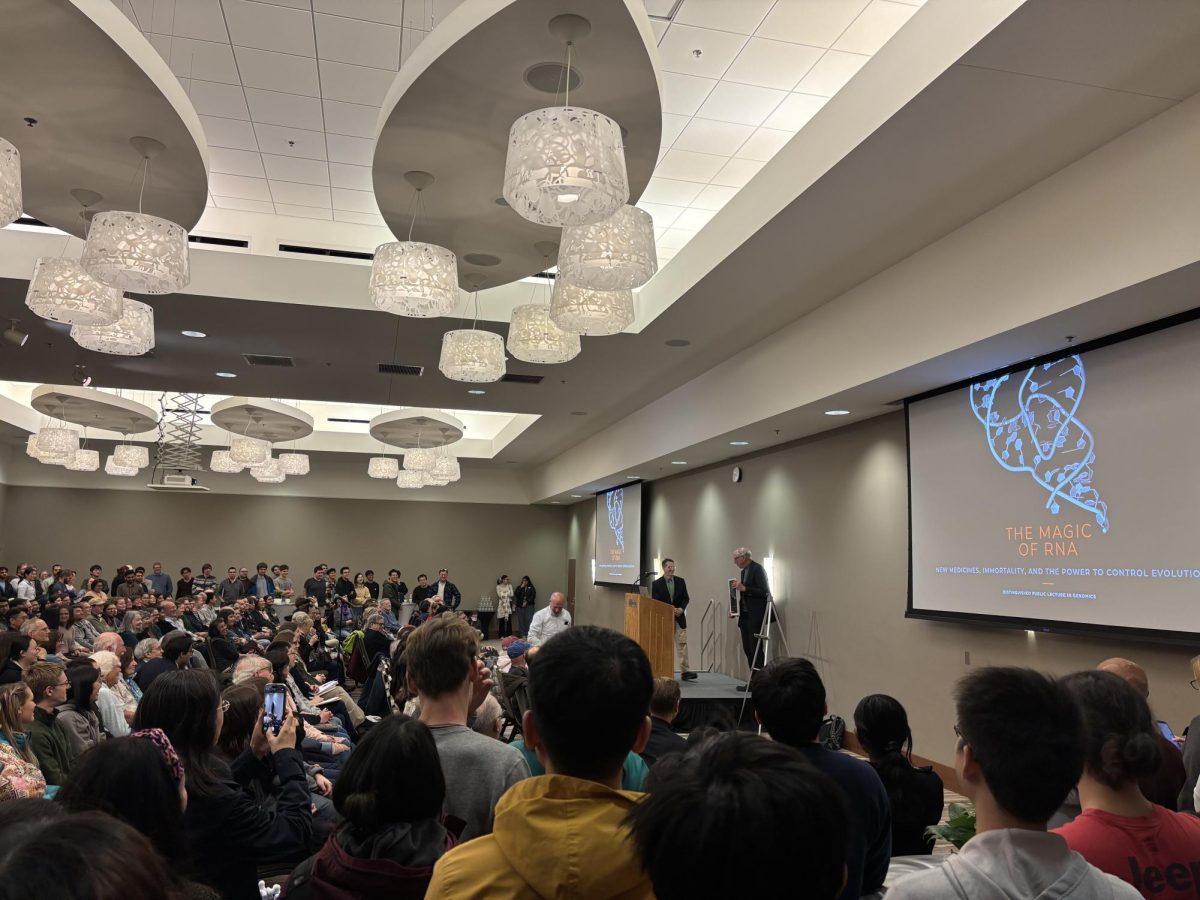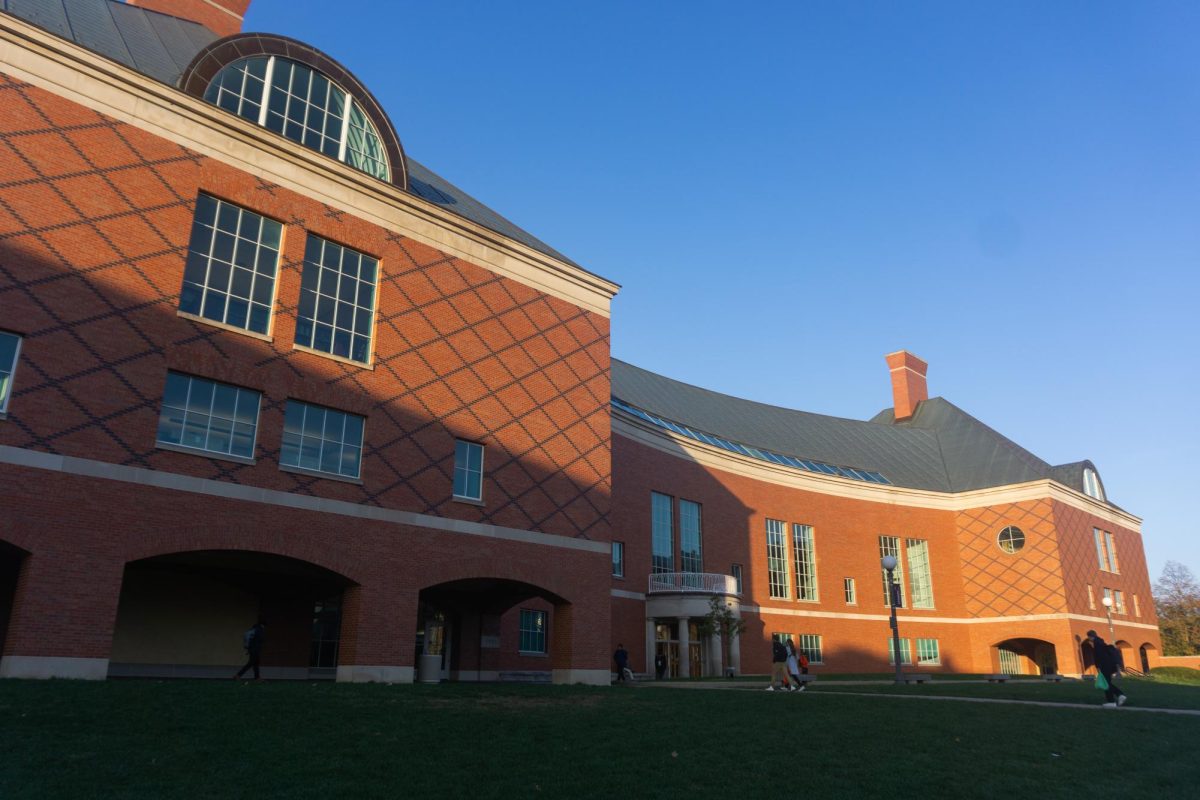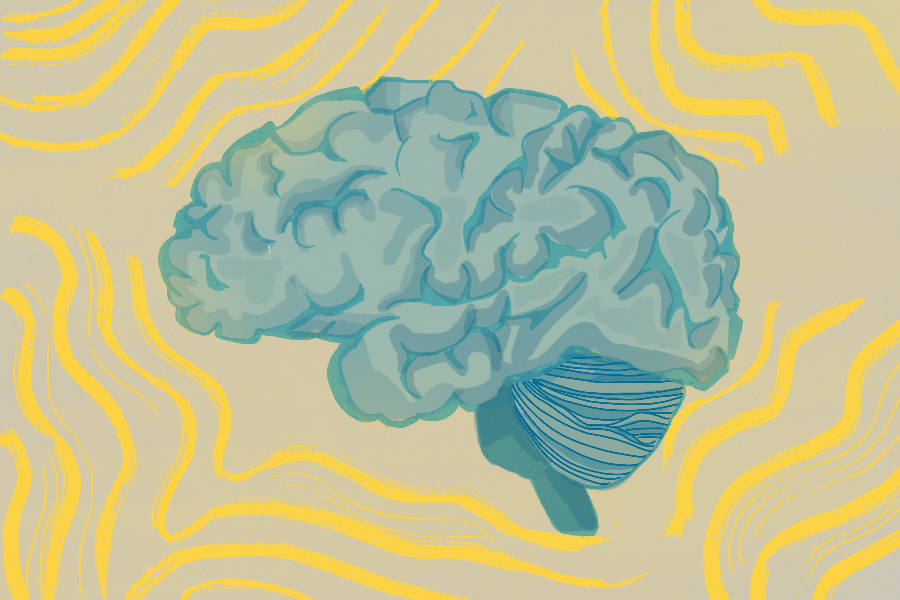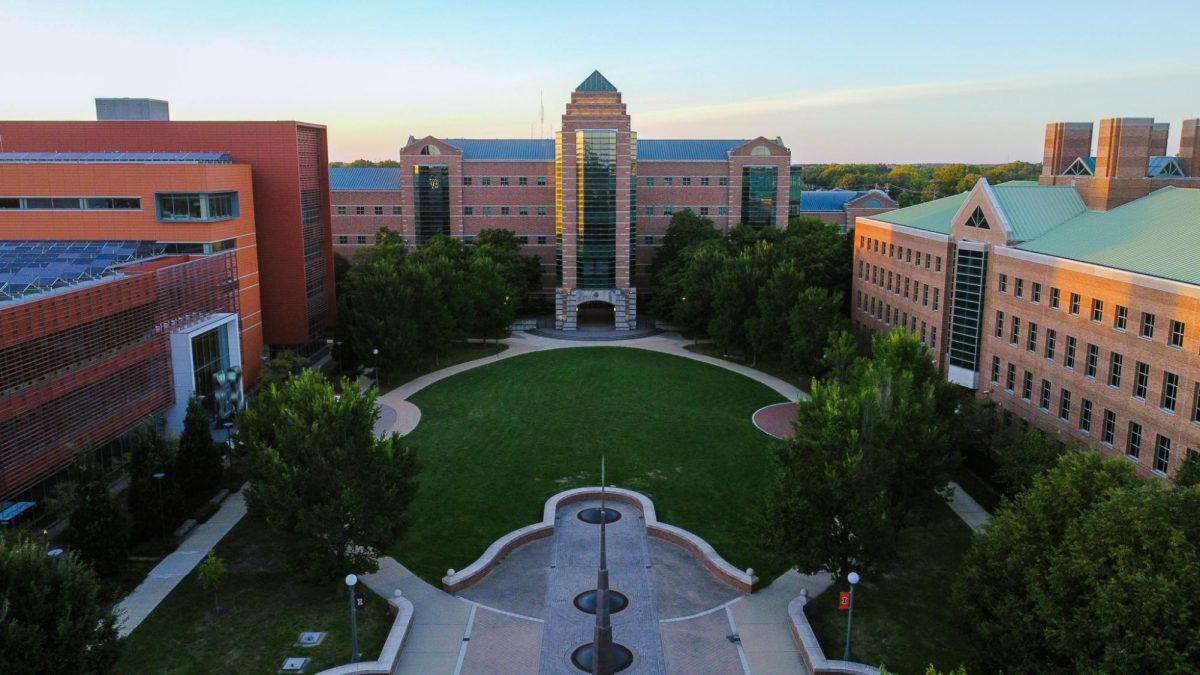On Tuesday, Nobel laureate Thomas Cech spoke at the I Hotel and Conference Center in Champaign about his groundbreaking research on ribonucleic acid, also known as RNA. Cech’s talk covered the importance of science communication, responses to COVID-19’s mRNA vaccines and his recently published book, “The Catalyst.”
Cech spent part of his childhood in Champaign before attending Grinnell College. He earned a doctorate in chemistry at the University of California-Berkeley and did postdoctoral research at the Massachusetts Institute of Technology. He is currently a Distinguished Professor in biochemistry at the University of Colorado-Boulder.
Alongside his team, Cech discovered that RNA can participate in metabolic processes, breaking and forming new bonds on its own. This action, known as RNA splicing, challenged previous beliefs that only proteins could catalyze biological reactions.
In 1989, Cech won the Nobel Prize in Chemistry for his discovery. He has earned other awards during his career, such as the Heineken Prize of the Royal Netherlands Academy of Sciences in 1988 and the National Medal of Science in 1995.
Before the lecture, Mayor of Champaign Deborah Frank Feinen officially introduced a new city holiday.
Get The Daily Illini in your inbox!
“I do hereby issue this proclamation in recognition of Dr. Cech’s extraordinary contributions to RNA research and celebrated status as a Nobel laureate and fellow Champaign citizen and student,” Feinen said. “As such, I designate April 1, 2025, as Tom Cech Day in the city of Champaign, Illinois.”
Professor Scott Silverman, a former trainee of Cech and member of the Department of Chemistry at the University, introduced his mentor.
“Tom’s lab in Boulder is well-known as a great place for scientific training in a really highly collegial environment,” Silverman said. “As a postdoc with Tom, I benefited from this myself, as did many others before and after me.”
As Cech took the podium, every seat in the conference room was filled, and rows of attendees lined the walls. Cech began by reminiscing on his time in Champaign, before discussing public reaction to COVID-19 mRNA vaccines.
Cech said Americans refused vaccines in part because they felt forced into them. He suggested that educating the public about RNA research would lead to improved outcomes. He added that faith in science has not recovered since the pandemic.
“Who’s to blame for this?” Cech questioned. “What I’m going to say next may outrage some of my scientific colleagues who are sitting in the audience, but I think that to a large extent, we scientists are getting what we deserve.”
Cech blamed public mistrust on the overuse of inaccessible language in science communication.
“Jargon is not intrinsically bad, but it is a real impediment when it comes to scientists talking to non-scientists,” Cech said.
Using accessible language to describe research was central to writing “The Catalyst.”
The bulk of the speech detailed three main dimensions of noncoding — not participating in protein formation — RNA: its catalytic properties, “immortal” capabilities and ability to “control evolution.”
In the first portion, Cech recapped his team’s revolutionary finding that RNA is both a biological catalyst and a messenger. They made this discovery by studying RNA molecules from the single-celled organism Tetrahymena thermophila. They witnessed the RNA cutting and reforming their own bonds in the absence of proteins that usually do this job.
“RNA can be both an informational molecule … but also can be an active participant in reactions,” Cech said. “Maybe the RNA was both a thing being copied, and it was the photocopying machine.”
Next, Cech explained another focus of his research: the enzyme telomerase and its anti-aging capabilities. Due to the natural failure to copy the ends of chromosomes during DNA replication, this region becomes shorter and shorter as organisms age. Telomerase protects chromosomes by extending their strands using RNA sequences as a template for adding DNA monomers.
Telomerase is usually deactivated as organisms mature or in tissues like the heart that don’t require actively dividing cells. However, it can be reactivated in many types of cancer cells, causing uncontrollable cell division and extended cell life.
The final leg of Cech’s lecture covered the role of noncoding RNA in controlling evolution. He discussed CRISPR, a technology that uses RNA as a guide for the selective modification of DNA. The technology can be used to correct mutations responsible for disorders but has sparked ethical concerns about possible misuse.
“We as scientists have the responsibility, not to tell the public what they should think, but to engage in conversations with the general public and evaluate what kind of uses CRISPR should be allowed,” Cech said.
The talk ended with a summary, thanking attendees and giving advice to aspiring scientists in the audience.
“Part of your responsibility is not just to try to make new discoveries but to learn how to also talk to your neighbors, your church group, your sports group, your friends, and explain to them what the sciences that you’re doing in a simple way,” Cech said. “Because I think if we had done more of that, we would not be quite in (the) situation we are in today.”







